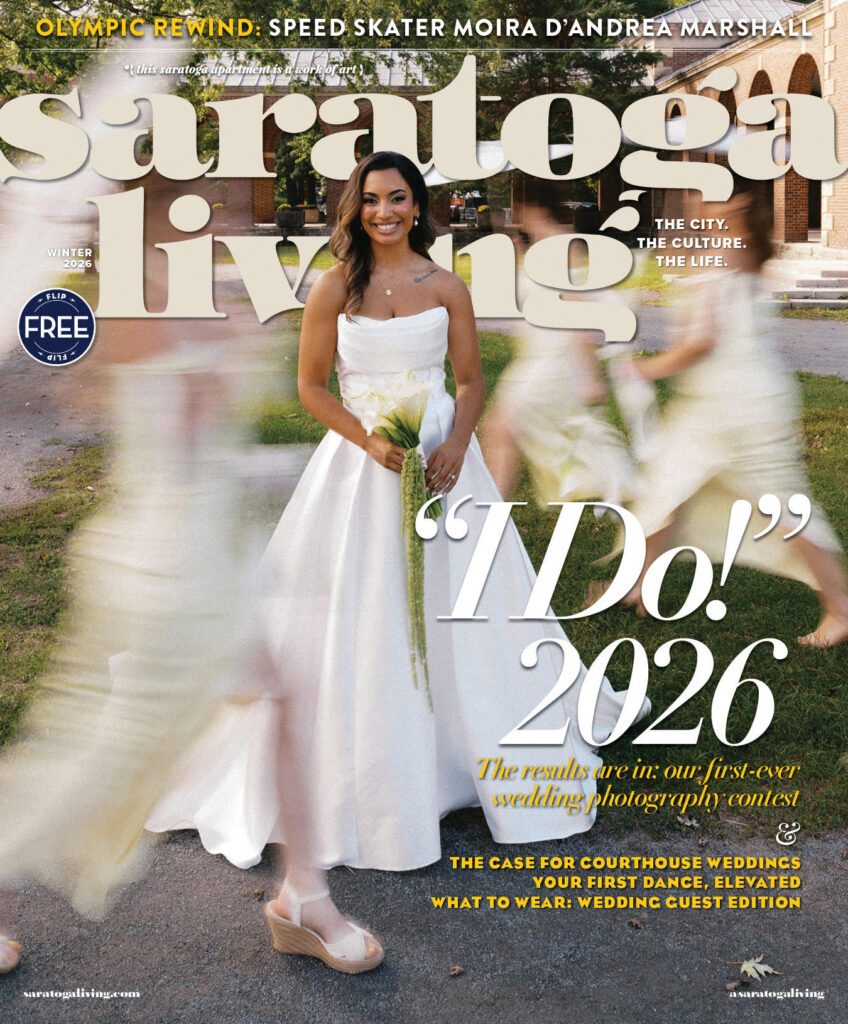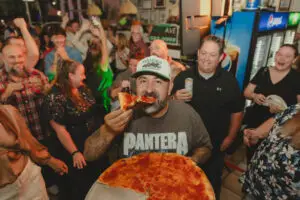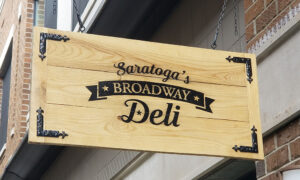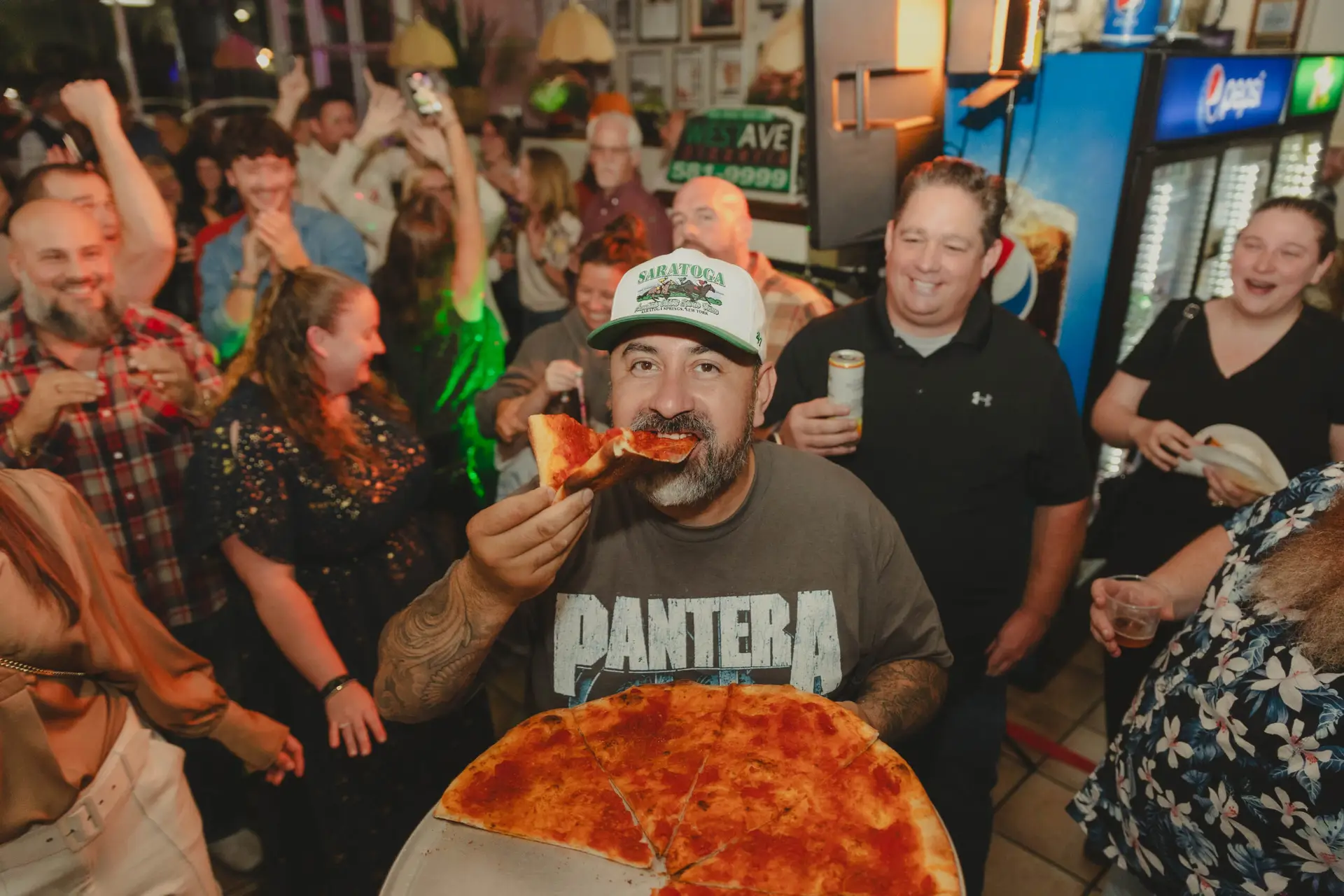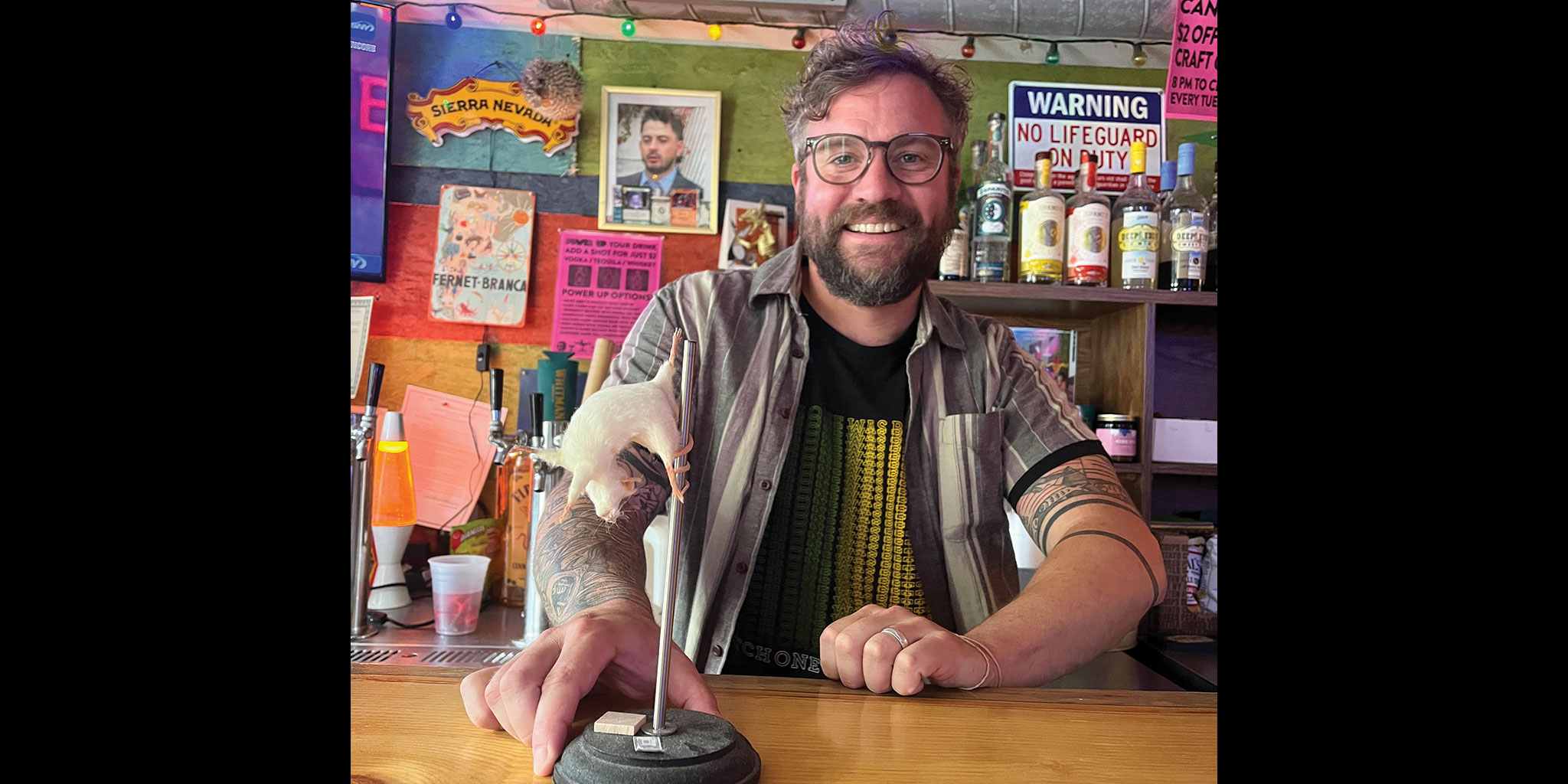The 2017 National Museum of Racing and Hall of Fame is holding its induction ceremony at 10:30am on Friday, August 4 (doors open at 9:30am). Taking place at the Humphrey S. Finney Sales Pavilion, East and Madison avenues in Saratoga Springs, the ceremony is free, and will feature the induction of jockeys Javier Castellano, Victor Espinoza, Garrett Gomez; steeplechase trainer Tom Voss; Goldikova (horse) and Good Night Shirt (steeplechase horse); Pillars of Turf John R. Gaines, Ogden Mills Phipps and Matt Winn. Former New York Racing Association track announcer Tom Durkin will serve as the master of ceremonies. Below, find out more about each of the inductees.
THE JOCKEYS
Javier Castellano, Victor Espinoza and Garrett Gomez have collectively won almost 12,000 races, more than $675 million in purse earnings, 23 Breeders’ Cup races, nine events in the Triple Crown series and six Eclipse Awards.
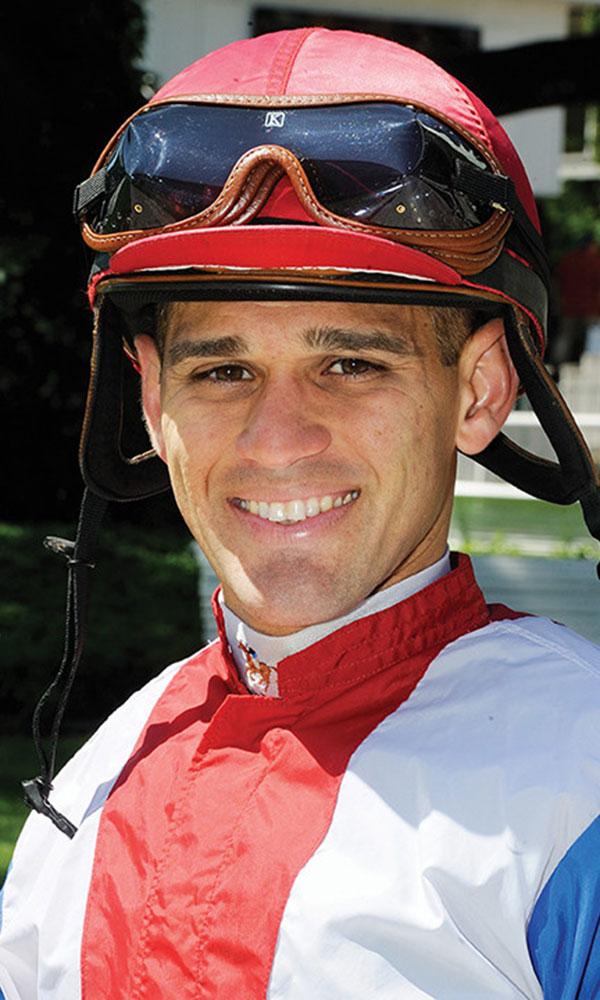
Javier Castellano, a native of Venezuela, was elected to the Hall of Fame in his first year of eligibility. Through June 10, he had won 4,703 races and ranked fifth all time in career earnings, with more than $281 million. The Eclipse Award for Outstanding Jockey each of the past four years, Castellano has won seven Breeders’ Cup races and two editions of the Preakness with Bernardini (2006) and Cloud Computing (2017). He has excelled at Saratoga, winning riding titles in 2013 and 2014. In 2015, he won his record fifth Travers Stakes, piloting Keen Ice to victory over Triple Crown winner American Pharoah.
Overall, Castellano has won 11 riding titles at New York Racing Association tracks, as well as five titles at Gulfstream Park and two at Keeneland Race Course. He set a North American record for earnings in 2015, with $28.1 million.
Victor Espinoza, a native of Mexico, won the Triple Crown in 2015 with Horse of the Year American Pharaoh. He had previously won both the Kentucky Derby and Preakness with War Emblem (2002) and California Chrome (2014). He is one of only five jockeys – along with Hall of Famers Eddie Arcaro, Bill Hartack, Gary Stevens and Kent Desormeaux – to have won both the Derby and Preakness three or more times each.
A winner of 10 riding titles on the Southern California circuit, Espinoza has won 3,321 races through June 10 with purse earnings of more than $193 million, ranking 17th all time. Espinoza began riding in Mexico in 1992 and had his big breakthrough when he piloted Spain to win the 2000 Breeders’ Cup Distaff at odds of 55 to 1.
Espinoza began a career peak in 2014 with California Chrome, the Eclipse Award winner for Horse of the Year in 2014 and 2016. With California Chrome, Espinoza also won the Santa Anita Derby, Hollywood Derby, Dubai World Cup and Pacific Classic, among others, in addition to the Derby and Preakness. With American Pharoah, Espinoza helped end the 37-year Triple Crown drought and added victories in the Breeders’ Cup Classic, Haskell and Arkansas Derby. American Pharoah was the unanimous choice for Horse of the Year in 2015 and Espinoza was named an Eclipse Award finalist.
Garrett Gomez, a native of Tucson, Arizona, won 3,769 races and had purse earnings of $205 million from 1988 through 2013, won 13 Breeders’ Cup races and was a two-time Eclipse Award winner (2007 and 2008). He ranked 12th all time in earnings at the time of his retirement. For four consecutive years (2006 through 2009), Gomez led all North American jockeys in earnings. In 2007, he set a record with 76 stakes wins.
Gomez, who rode his first winner in New Mexico in 1988, won the Bill Shoemaker Award as the top jockey at the Breeders’ Cup four times. Among many memorable moments at the Breeders’ Cup, Gomez rode champion Blame to a thrilling victory in the 2010 Classic, handing Zenyatta her lone career defeat. Gomez won four riding titles at Hollywood Park, as well as titles at Santa Anita, Keeneland and Arlington. His victories at Saratoga included the Travers, Whitney and Hopeful. Gomez died in 2016 at age 44.
THE TRAINER
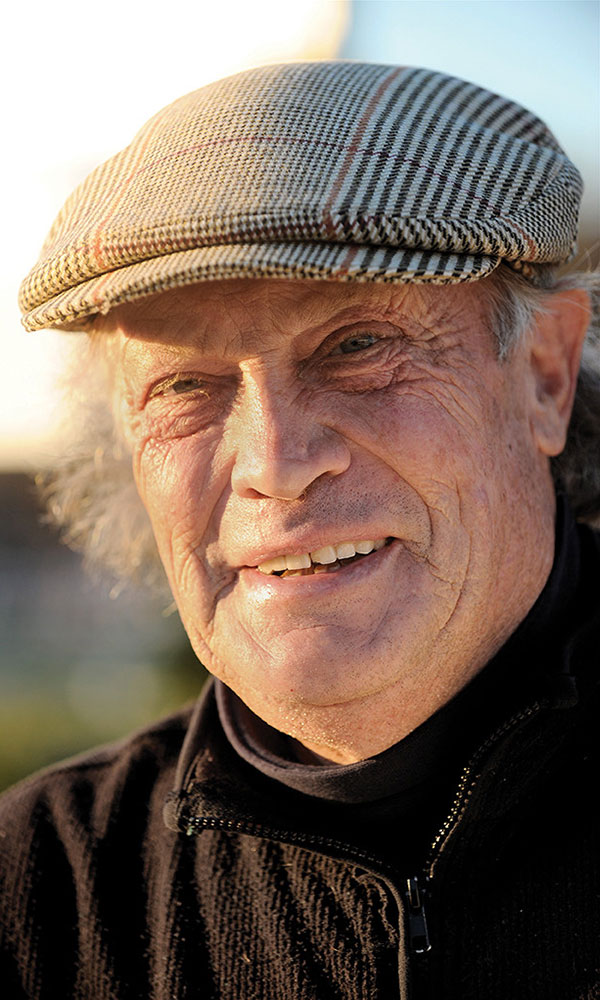
A native of Monkton, Maryland, Tom Voss became a legend in the steeplechase community and enjoyed success on the flat track. A jump jockey in his youth, Voss began training in 1973 while still a rider. He went on to be the National Steeplechase Association’s champion trainer five times in wins and three times in earnings.
Among the all-time leaders, only Jonathan Sheppard and Jack Fisher have higher career steeplechase earnings than Voss.
Voss trained Eclipse Award winner Slip Away, as well as seven other NSA champions. Perhaps his most famous horse was John’s Call, a gelding that won the Grade 1 Sword Dancer and Turf Classic in 2000 as a 9-year-old. John’s Call won or placed in 30 of his 40 career starts and earned more than $1.5 million. Voss won 706 races in his career (395 steeplechase) and had overall earnings of more than $17 million. He died in 2014 at age 63.
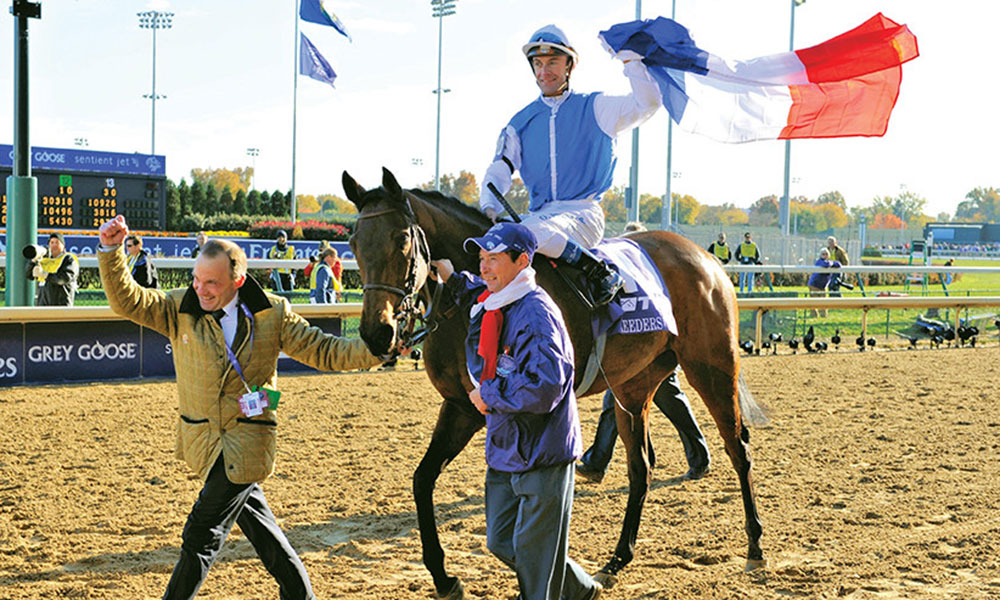
THE HORSES
Bred in Ireland and based in France, Goldikova became the first horse to win three Breeders’ Cup races. She won the Mile at Santa Anita in 2008 and 2009 and at Churchill Downs in 2010. Owned by Alain and Gerard Wertheimer, Goldikova was trained by Freddy Head. She won Eclipse Awards in 2009 and 2010.
Along with her three American victories in the Breeders’ Cup, Goldikova won prestigious races in France and England. Among her 14 Grade/Group 1 victories – a record for a European-based horse – were nine wins against males. Attempting to win her fourth consecutive Breeders’ Cup Mile in 2011, Goldikova finished third. She was retired with a record of 17-6-3 from 27 starts and earnings of $7.1 million.
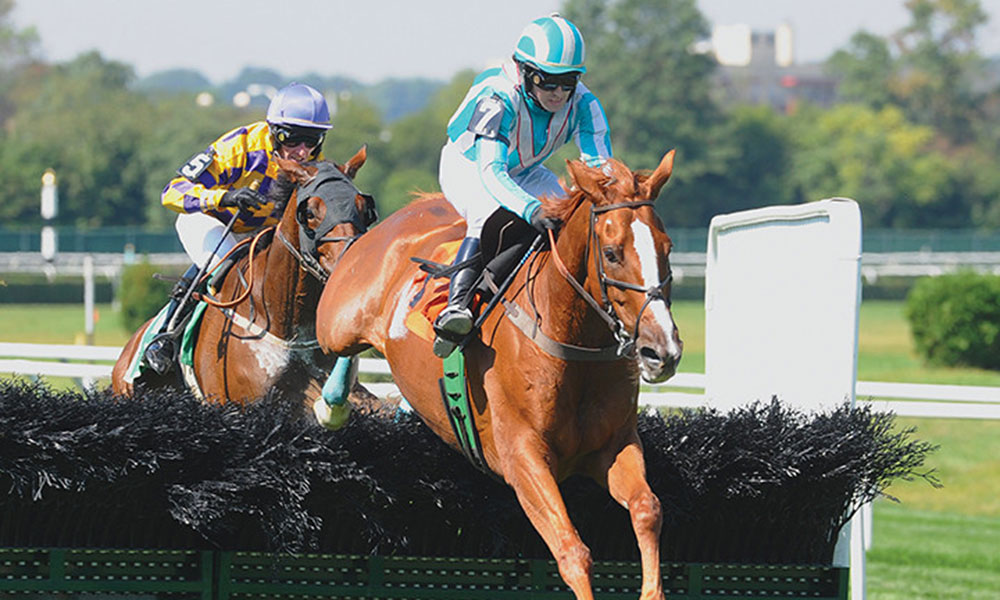
Good Night Shirt was bred in Maryland and developed into one of the top steeplechasers of all time. An Eclipse Award winner in 2007 and 2008, he was owned by Sonny Via and trained by Jack Fisher. After winning three Grade 1s in 2007 and setting a steeplechase single-year earnings mark that year of $314,163, he was even better the following year as an 8-year-old.
Competing exclusively in Grade 1 events in 2008, Good Night Shirt won all five of his starts: the Georgia Cup, Iroquois, Lonesome Glory, Grand National and Colonial Cup. He set a course record in the Lonesome Glory and broke his own earnings record with $485,520. Good Night Shirt became only the third steeplechaser with career earnings of more than $1 million and retired with 14 wins from 33 starts.
PILLARS OF THE TURF
John R. Gaines (1928-2005) is best known in racing for organizing the creation of the Breeders’ Cup and developing Gainesway Farm into one of the sport’s elite stallion operations. A native of Sherburne, N.Y., Gaines acquired, syndicated, stood and managed such top stallions as Bold Bidder (sire of Kentucky Derby winners Cannonade and Spectacular Bid, the latter Horse of the Year in 1980 and a Hall of Fame inductee in 1982), Blushing Groom and Broad Brush. Gaines further developed the business when he moved the farm to its present location in Kentucky and acquired half of the C. V. Whitney Farm.
Gaines conceptualized the idea for the Breeders’ Cup, which he announced prior to the 1982 Kentucky Derby, and worked tirelessly to lead the effort. The series was launched in 1984 and has revolutionized the sport. The first Breeders’ Cup program was run at Hollywood Park and featured seven races with purses totaling $10 million. The program has steadily expanded and the 2017 edition at Del Mar will present 13 Grade 1 races with purses totaling more than $28 million during its two-day showcase.
Respected both in the United States and internationally, Gaines received the Duke of Devonshire Award for improving English breeding and racing, as well as the Lord Derby Award for contributions to English racing. He was presented the Eclipse Award of Merit in 1984 and was The Thoroughbred Club of America Honored Guest in 1991. Gaines also received the Breeders’ Cup Special Award. He bred a total of 48 thoroughbred stakes winners individually or in partnership.
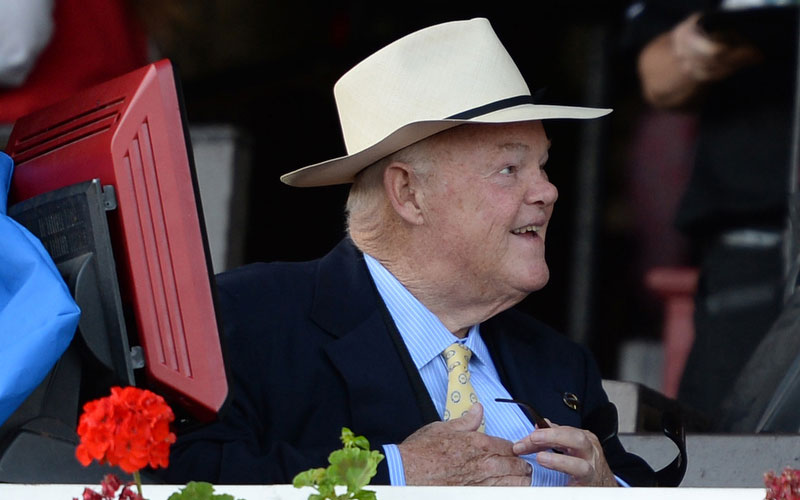
Odgen Mills “Dinny” Phipps (1940-2016), a New York City native, was born into a family that had already been successful in thoroughbred racing and breeding for multiple generations. Phipps provided inspiration and leadership to the sport on many levels. As chairman of The Jockey Club for an unprecedented term length of 32 years (1983 through 2015), he transformed the organization from one with a primary role of maintaining the stud book into a diverse group of companies to fill specific needs within the sport.
Phipps changed the composition of The Jockey Club, branching the organization out to create or acquire numerous companies that perform a variety of essential services for the industry, including Equibase Company, The Jockey Club Information Services Inc., BloodHorse magazine, InCompass Solutions Inc., The Jockey Club Technology Services Inc., and TJC Media Ventures. Even before his election as chairman of The Jockey Club, Phipps had earned the Eclipse Award of Merit in 1978. Later honors included The Jockey Club Medal and designation as The Thoroughbred Club of America’s Honored Guest in 1990.
Phipps bred 89 stakes winners, and in recent years was a principal in the family’s Phipps Stable, as it was organized to include his children. Champions bred by Phipps individually, as Phipps Stable or other partnerships, were Rhythm, Inside Information, Storm Song, Storm Flag Flying and Smuggler. Also, Phipps and a cousin, Stuart Janney III (present chairman of The Jockey Club), bred and raced Orb, the 2013 Kentucky Derby winner.
Matt Winn (1861-1949), a native of Louisville, Ky., watched Aristides win the inaugural Kentucky Derby in 1875 and saw every edition after that until his death at age of 88, catching the race’s 75th running before he died. Winn helped guide the Kentucky Derby on a path from humble beginnings into America’s signature thoroughbred race.
In 1902, Winn formed a syndicate of investors that purchased struggling Churchill Downs for $40,000. He made immediate renovations to the track’s clubhouse and used his unique marketing skills to help Churchill turn a profit for the first time in its history. In 1911, Winn changed racing forever by introducing the $2 minimum bet; in the past, the minimum pari-mutuel bet had been $5, beyond the feasibility of most working people.
Churchill’s finances steadily improved under Winn, who in 1915, convinced prominent owner Harry Payne Whitney to bring his New Jersey-bred filly Regret to the Kentucky Derby. The recruiting effort paid off handsomely, as the national publicity surrounding Regret’s victory stamped the Derby as a marquee event on the American racing calendar. Winn worked at several other tracks in an executive capacity as well, including Latonia, Laurel, Lincoln Fields, Lexington and Douglas Park. He was The Thoroughbred Club of America’s Honored Guest in 1943. The Matt Winn Stakes at Churchill Downs is named in his honor. A 1949 New York Times article said of Winn’s influence on the Kentucky Derby: “He alone made it what it is today.” S






